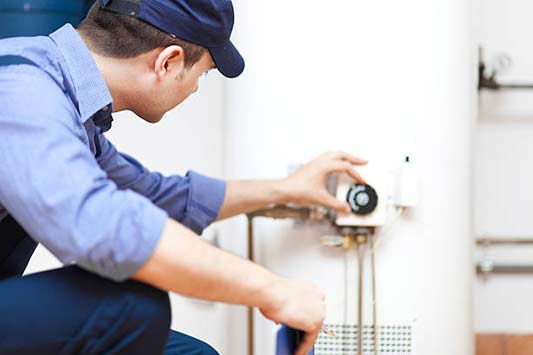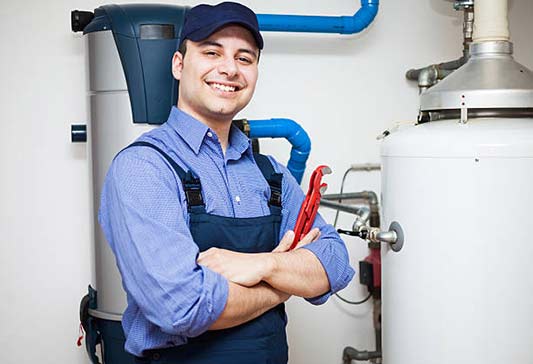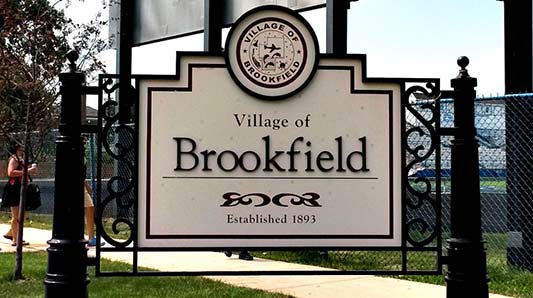
Are you a homeowner in Brookfield, IL, considering a water heater installation? This decision can have a significant impact on your daily life and household expenses, so it is crucial to approach it with careful consideration. This article will guide you through the essential factors to keep in mind before proceeding with the installation, ensuring that you make an informed decision that meets your specific needs.
The Importance of a Water Heater
Before we delve into the considerations for a water heater installation, let’s briefly discuss the importance of having a reliable and efficient water heater in your home. A water heater plays a vital role in providing hot water for various activities, such as bathing, cooking, and cleaning. Without a properly functioning water heater, these everyday tasks would become inconvenient and uncomfortable.
Additionally, old or inefficient water heaters can significantly impact your energy bills. By investing in a newer, more energy-efficient model, you can reduce your energy consumption and save money in the long run. A water heater installation is an opportunity to upgrade to a more advanced system that meets your household’s hot water demands while being environmentally friendly and cost-effective.
Factors to Consider Before Installation
Type of Water Heater
The first consideration is the type of water heater that best suits your needs. There are several options available, including conventional storage tank water heaters, tankless water heaters, and heat pump water heaters. Each type has its advantages and disadvantages, and understanding these differences will help you make an informed decision.
Conventional storage tank water heaters store and heat a specific amount of water, providing a steady supply of hot water. Tankless water heaters, on the other hand, heat water on demand, providing hot water whenever you need it. Heat pump water heaters use electricity to move heat from the air or ground to generate hot water, making them highly efficient.
Your choice of water heater type should be based on factors such as your household size, hot water usage patterns, available space, and budget. Consulting with a professional plumber or water heating specialist can help you determine the most suitable type for your specific requirements.
Size and Capacity
The size and capacity of your new water heater are crucial considerations to ensure it can meet your household’s hot water demands. Choosing a water heater that is too small will lead to inadequate hot water supply, while selecting one that is too large can result in wasted energy and higher utility bills.
When determining the size and capacity of your water heater, consider factors such as the number of individuals in your household, their hot water usage patterns, and peak hot water demand during specific times, such as mornings or evenings. An experienced Brookfield plumber near you can help you calculate your hot water needs accurately, ensuring the selected water heater can meet your household’s requirements comfortably.

Energy Efficiency
With the increasing emphasis on energy efficiency and sustainability, choosing an energy-efficient water heater is not only better for the environment but also helps you save on utility bills. Look for water heaters with high Energy Factor (EF) ratings. The higher the EF rating, the more efficient the water heater is in converting energy into hot water.
Consider energy-efficient features such as good insulation, digital controls, and adjustable temperature settings. Investing in an energy-efficient water heater may have a higher upfront cost, but it can lead to significant long-term savings through reduced energy consumption.
Installation Cost and Maintenance
Before proceeding with a water heater installation, it is essential to consider the installation cost and ongoing maintenance requirements. While it may be tempting to choose the cheapest option upfront, keep in mind that higher-quality water heaters often provide better performance and durability.
Obtain a quote from a reputable plumbing company in Brookfield such as Suburban Plumbing Experts, and consider it based on factors such as installation charges, warranty coverage, and customer reviews. It is crucial to choose a qualified and experienced Brookfield, IL plumber who can ensure the installation is done correctly and efficiently, minimizing the risk of future issues.
Additionally, inquire about the maintenance requirements of the water heater you are considering. Some models may require regular flushing or other maintenance tasks to optimize their performance and extend their lifespan. Understanding these requirements upfront will help you plan for future maintenance costs and ensure the longevity of your investment.
Cost of Operation
In addition to the initial installation cost, it is essential to consider the long-term cost of operating the water heater. This includes factors such as fuel type (electricity, natural gas, propane), energy rates, and the estimated annual energy consumption of the chosen water heater.
Comparing the estimated annual operating costs of different water heaters can provide valuable insights into potential long-term savings. While energy-efficient models may have a higher upfront cost, they can lead to significant energy savings over their lifespan, making them a worthwhile investment.

Permits and Local Requirements
Before proceeding with a water heater installation, it is crucial to ensure compliance with local building codes and obtain any necessary permits. Regulations regarding water heater installations may vary depending on your location, and failure to comply can result in fines and the need to redo the installation.
speak with a local plumber in Brookfield or local building authority to understand the specific requirements for water heater installations in Brookfield, IL. They can guide you through the necessary permits, inspections, and safety considerations, ensuring the installation meets all legal and safety standards.
To Conclude
Selecting and installing the right water heater for your home in Brookfield requires careful consideration of various factors, including the type of water heater, size and capacity, energy efficiency, installation cost, maintenance requirements, cost of operation, and local regulations. By taking the time to assess these aspects and seek expert advice, you can make an informed decision that ensures an efficient, reliable, and cost-effective supply of hot water for years to come.
—
Are you in need of a water heater installation in the Brookfield, IL area? Our Brookfield plumbers can help! Reach us at 708-801-6530 or by form below!
[gravityform id=”1″]

